Articles/Opinion » World News
Understanding the Escalation in US-Iran Affairs
January 9, 2020 | By Sikh Siyasat Bureau
Background of Escalation in US-Iran Affairs:
The US and Iran have different ideologies and goals that motivate their interests within the Middle East region. It becomes close to impossible for both parties to hold parallel influence in that region.
If there is one thing that motivates states to act aggressively, it is the need to protect their national and foreign policy interests.
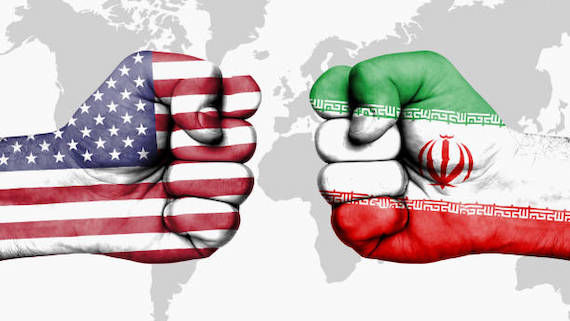
Image used for representational purpose only
While Tehran was maximising its power by cementing its position in the Middle East, the US saw this as a threat to its interests and the only solution that could rectify this ‘problem’ was to kill General Suleimani who has coordinated effective links with Hezbollah in Lebanon, Hamas in Palestine, Houthis in Yemen, militias in Iraq, Bashar al Assad’s forces in Syria, and very importantly, with Russians in the Middle East. The US cannot afford to yield space in Iraq to an Iran-driven popular people’s movement.
This led the Trump administration to dub Iran’s action as “malign activity” against US regional interests and allies.
As political realism assumes that interests are to be maintained through the exercise of power, this is very much a possibility as a consequence of Soleimani’s killing.
Tensions have been building between the US and Iran in the Gulf for quite some time and it was only a matter of time before the escalatory path would reach a boiling point.
Washington had to re-establish deterrence and show the Iranian leadership that missiles fired at ships in the Persian Gulf and oil facilities in Saudi Arabia, along with attacks on the US al-Asad air base (inside Iraq) and the US embassy in Baghdad’s Green Zone, would not pass without a response.
This is when the instability of the international system illustrates its roots.
Why the US has taken this dangerous step at this moment:
Several people in Trump’s close circle like former national security advisors Michael Flynn and John Bolton, and “unofficial advisors” like Israel’s Benjamin Netanyahu and Saudi Crown Prince Mohammed bin Salman, have all incessantly urged him to act militarily against Iran and push for regime change.

US President Donald Trump [File Photo]
The domestic political environment of the US is in flux, with an upcoming impeachment trial in the Senate and Trump would risk anything for a fillip to his chances of re-election.
For Trump, the elimination of Soleimani has played well with his political base.
Iran’s proxy attack on the US embassy in Baghdad on 31 December was a rude reminder of the humiliating 1979 takeover of the US embassy in Tehran that demoralised the Carter administration and the 2012 attack on the US diplomatic compound in Benghazi that bruised the Obama administration.
The Trump administration, which feared a repeat of this scenario in Baghdad, claims its response was meant to safeguard American lives from future attacks, not start a war with Iran.
For its own larger cause and image, the US would be least concerned about the worldwide economic ramifications of it subsequent actions.
Energy price rises, risks to shipping, and the economic collapse of the Gulf economies will probably be of less concern than in 1990 because the US is no longer dependent on the Middle East for energy. According to estimates, the US imports 1/3rd of its petroleum and oil consumption from the Middle East.
Thus, it will not be much affected by the likely tensions in the Middle East – at least over the next few months.
Future options of US:
A limited set of military actions from time to time — those that exploit US technological superiority — will draw more favourable support.
At the same time there has not been any sign that the Trump administration has a well thought out foreign policy strategy to handle this matter going forward.
John McLaughlin, a former deputy director of the CIA has argued that “Trump and members of his Cabinet with critical roles in a potential conflict with Iran have two defining qualities – low credibility and limited experience.”
Of course, a lot is contingent upon the nature of Iran’s retribution for the death of the man who was often called a “living martyr”.
Checks for US:
The US can use a sledgehammer to defeat and destroy Iran and its forces but after the Iraq and Afghanistan experiences, it is aware that victory in such wars does not necessarily belong to the stronger side.
If the US chooses to confront them directly without using its own proxies, it runs the risk of an Afghanistan or an Iraq type of commitment.
Pushing the confrontation too far carries huge risks for Trump’s campaign to retain the White House in the general elections later this year.
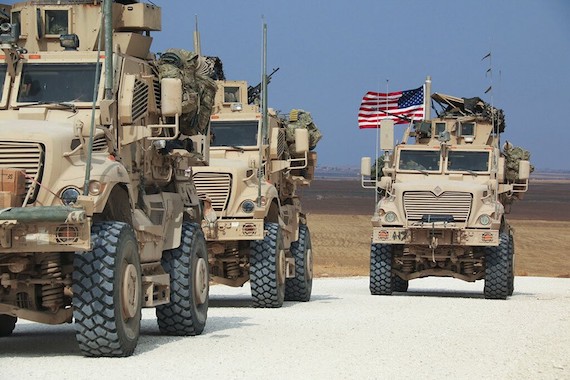
Image used for representational purpose
Trump seems set to fail on one of his main 2016 campaign promises: to withdraw from American commitments overseas. In addition to 13,000 US personnel deployed in Afghanistan, still there are 14,000 US personnel who have been deployed to the Middle East region since May. Iran has a number of fronts where it can escalate its efforts against the US and its allies, including Lebanon, Syria, Yemen and the Gulf.
In this case, the US has to deploy more troops.
Trump would not want to lose the crown in trying to win a distant war.
With the US emerging as a major oil producer and exporter, energy security is no longer a driving force for Trump.
For Trump, counter-terrorism is perhaps the only credible reason to sustain a large military footprint in the Middle East. That, arguably, could also be achieved through off-shore military presence.
Trump might not be averse to taking US troops off the ground in the Middle East. But he would like to do it on his own terms.
Impact on Iran:
US sanctions already in place had blocked the country’s vital oil exports, crippled its economy and bankrupted its military.
It came on the tail of mass protests in both Iran and Iraq which challenged the Islamic Republic both domestically and regionally. Trump’s decision to approve the assassination of General Soleimani, however, has given a lifeline to the Iranian leadership and its allies in Iraq by driving nationalist sentiments and turning attention away from the failings of the Governments in Baghdad and Tehran.
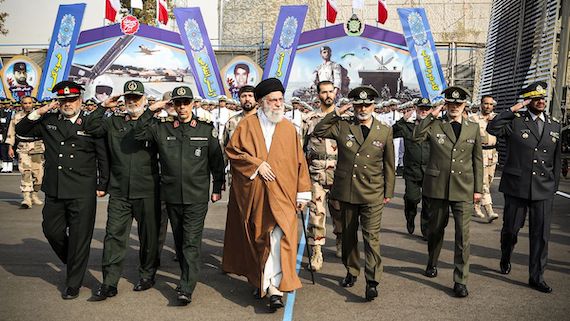
Iran President Hassan Rouhani with officials of Iran’s Armed forces [File Photo]
What the Islamic Republic and its allies lost in the deaths of two military commanders will be made up in their martyrdom being used as a source of new legitimacy in Iraq and beyond.
Iran’s Response:
Tehran’s responses to the escalation are measurable.
One, Iran has resumed uranium enrichment as part of its step-by-step withdrawal from the 2015 nuclear agreement with the international community in response to Trump’s decision to tear it up.
Second, it has got its political allies in Iraq to get the parliament in Baghdad to pass a resolution demanding an end to US military presence in Iraq.
The two moves ramp up pressure on US allies and mobilise anti-Americanism in the Middle East. The Europeans are deeply committed to the nuclear agreement. They are eager to contribute to the de-escalation of the current crisis if only to save the nuclear deal.
The second move feeds into the declared long-term Iranian objective of driving Americans out of the Gulf and brings us to the ultimate irony of the present crisis.
Iran has launched a calculated, limited strike on US al-Asad air base in Iraq that doesn’t cause much damage to the Americans but yet makes good on its pledge for revenge. It is an escalating step, but not yet an all-out War.
Possible options of Iran:
The call for revenge was reverberating throughout the funeral procession rallies of General Soleimani.
A mosque in the Shia holy city of Qom in Iran had unfurled a red flag indicating that war was coming.
Khamenei certainly can’t afford to look weak in the face of an unprecedented provocation from Trump.
As Iran has vowed revenge, it could also hit back at US military bases, assets in the Middle East region, and also assets of its allies like the UAE and Saudi Arabia, such as oil facilities and US consulates anywhere in the world.
Iran’s options are plentiful and her timetable is open-ended. This includes assassinations, covert operations, low-intensity warfare and oil and maritime disruptions in the Gulf region.
Weaker nations, such as Iran in this case, choose to fight through non-state associates who are not exactly unorganised and undisciplined elements.
For Iran’s non-state associates, borders remain just lines on maps; they can be crossed at will despite modern surveillance systems.
Checks for Iran:
Iran is an old and mature civilisation; it will absorb the attack at first and avoid an all-out war with the far superior US military forces. A direct military contest between the US and Iran is loaded in America’s favour.
The Supreme Leader will also have to factor in Trump’s unpredictability.
Trump’s campaign of maximum pressure has put Iran’s economy under great strain and deepened domestic political discontent. A prolonged war with the US could sharpen the Islamic Republic’s internal contradictions.
In non-state associates, there is minimum control and direction. That is where Iran too runs the risk of overplaying its strategy without the presence of a strong and experienced commander like Soleimani, which could lead to a more direct confrontation.
Situation in Iraq:
Since October, Iraq has witnessed a wave of protests against corruption, Government mismanagement, and deteriorating living conditions across the south and centre of the country. Protesters have also rejected Iranian interference and support for the Government.
Iranian-affiliated PMUs have been accused of targeting the protesters, who for the most part are their Shia co-religionists. The Iranian consulates in Najaf and Karbala were torched and Adel Abdul Mahdi, the Iraqi prime minister whom Iran supported, had to resign in the face of the escalating violence against peaceful protests.
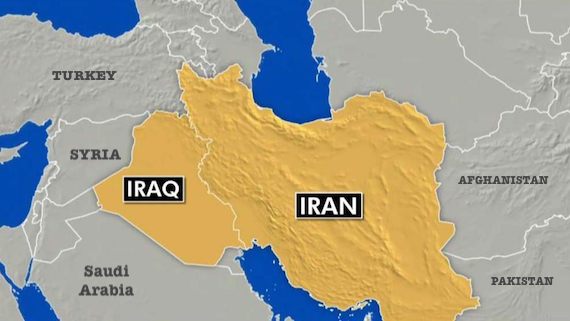
Apart from the PMUs and pro-Iranian political factions, other Shia forces are also not particularly happy with the US presence in Iraq. Shia leader Muqtada al-Sadr, whose Sairoon coalition won the most seats in the 2018 parliamentary elections, has always been wary of Iranian influence in Iraq and has clashed with pro-Iranian groups, but he has opposed American influence even more. He came to prominence after 2003 by leading his militia in years of fighting against US forces in Iraq.
Impact on Iraq:
Iraq has never faced an intra-Shia crisis on this scale.
The US attack, however, will likely undermine the Iraqi protest movement and may reunite Shia forces. While Iraqis may have protested against the PMUs, they would take even more umbrage at the US attacking one of their own leaders who led the fight against the Islamic State of Iraq and the Levant (ISIL or ISIS). The US made Al-Muhandis a martyr.
Several hours after the US attack, he issued a statement mourning Soleimani and al-Muhandis’ deaths and ordering his militia, the Mahdi army, to mobilise “to protect Iraq”.
It was a grave violation of Iraq’s national sovereignty and it is likely to result in further instability in the country and beyond.
Pressure of international community:
Trade and the shipping of oil could be disrupted if the Strait of Hormuz – through which one fifth of the world’s oil is shipped – is closed (some analysts believe that Iran may blockade the Strait of Hormuz (the mouth of the Persian Gulf). It would be pertinent to point out that between the beginning of 2018 and June 2019, well over 20 million barrels of oil (22.5) passed through the Strait.”
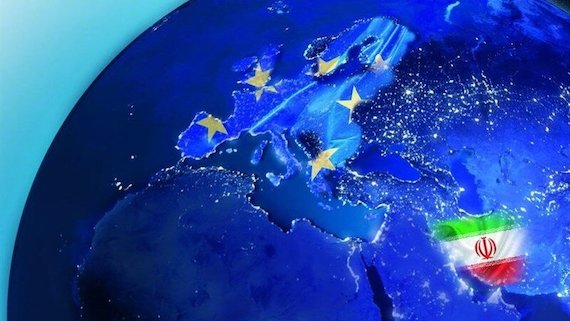
Representational image
If the situation flares up, trade and energy supplies will be affected. Already sluggish economies of Asian countries will be in serious crisis. So Major powers of Asia like China, Japan, India and Pakistan will be interested in de- escalation.
Germany, France and other EU states want de-escalation because they want to save the nuclear deal.
Conclusion:
It remains unlikely that either party would want to escalate to war in the immediate term.
But there is always the danger of miscalculation by one or more of the actors.
To Get Sikh Siyasat News Alerts via WhatsApp:
(1) Save Our WhatsApp Number 0091-855-606-7689 to your phone contacts; and
(2) Send us Your Name via WhatsApp. Click Here to Send WhatsApp Message Now.
Sikh Siyasat is on Telegram Now. Subscribe to our Telegram Channel
Related Topics: Iran-US Conflict




